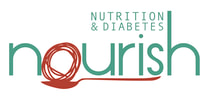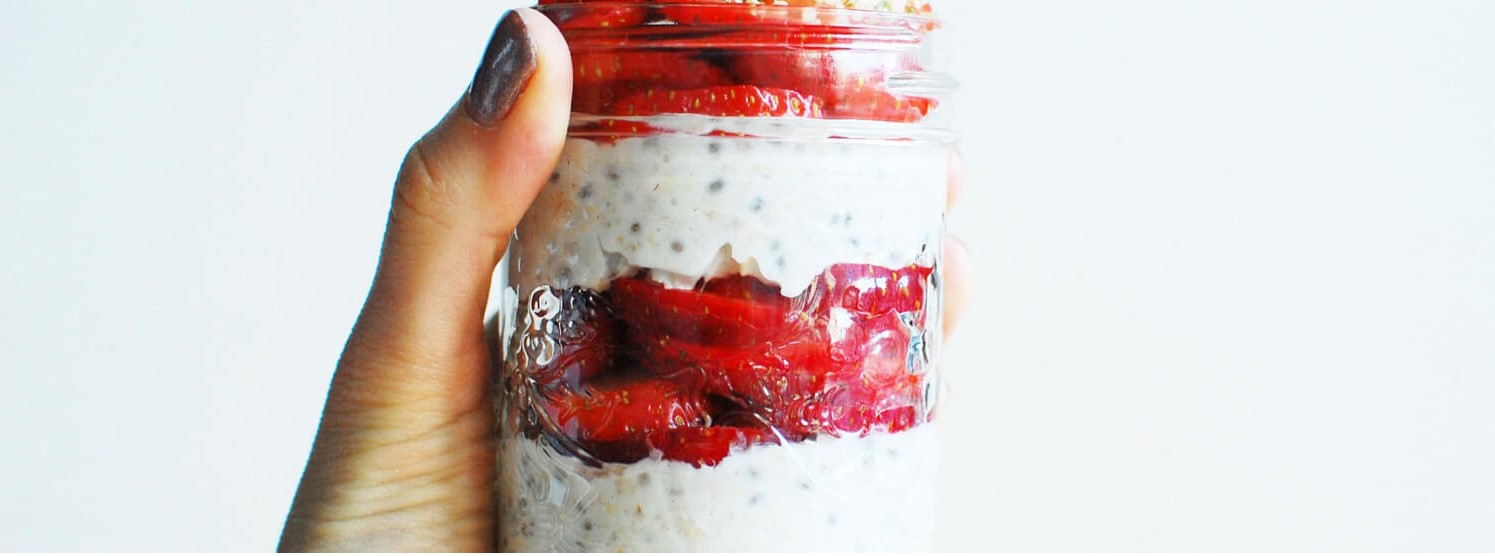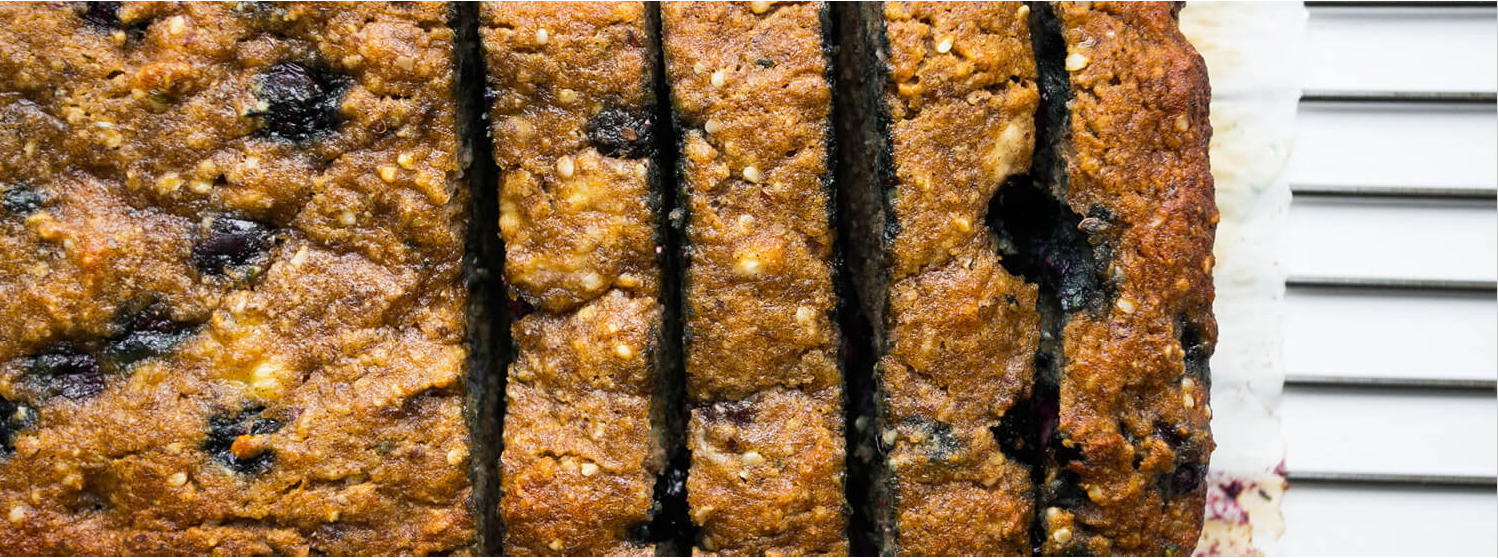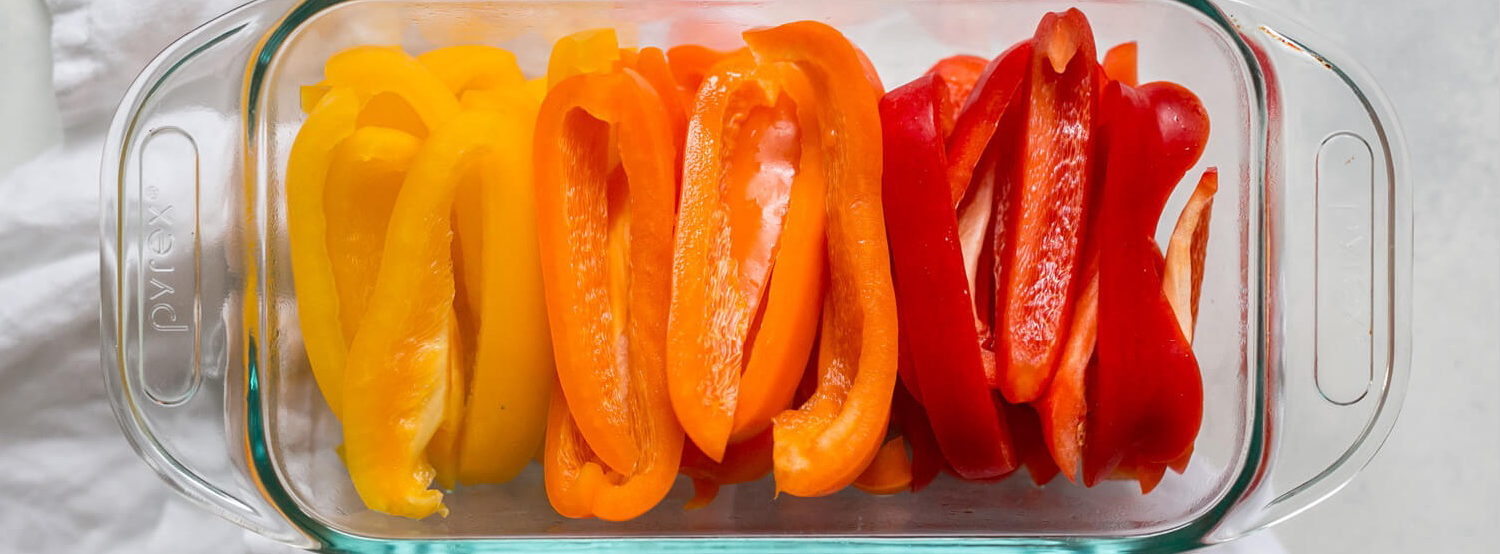AuthorOur articles are written by our registered dietitian nutritionists. Archives
May 2020
Categories |
Back to Blog
by Amber Lotspeich Mills, MS, RD/LDIf you need an easy breakfast that you can make ahead of time and have ready in the morning, you should try overnight oats! For a breakfast to look forward to, try this recipe made with strawberries. Just soak the ingredients overnight, and enjoy in the morning. No cooking required! Strawberries are in season now and are delicious! This recipe makes four servings, so it's great to prepare for the work week. Ingredients: 1 1/2 cups Oats (quick) 1 1/2 cups Organic Coconut Milk 2 tbsps Chia Seeds 1 tbsp Maple Syrup 3/4 cup Water 2 cups Strawberries (sliced) 1/4 cup Hemp Seeds Directions 1. Combine oats, coconut milk, chia seeds and maple syrup together in a glass container. Add water and stir well to evenly mix. Cover and store in the fridge overnight. 2. Remove from fridge. Use single-serving size jars (250 mL or 500 mL in size) and place a few spoonfuls of the oat mixture in the bottom of each. Then add a layer of diced strawberries followed by a sprinkle of hemp seeds. Repeat until all ingredients are used up. Store in the fridge up to 4 days or until ready to eat (cold or hot). Nutrition: Calories 397, Cholesterol 0 mg, Fat 25 g Sodium 27 mg, Saturated Fat 16 g, Vitamin A 10 IU, Carbs 35 g Vitamin C 42 mg, Fiber 6 g, Calcium 81 mg, Sugar 8 g, Iron 3 mg, Protein 10 g
1 Comment
Read More
Back to Blog
Real Food Blueberry Banana Bread4/12/2020 Lisa Johnston, MS, RD/LD, CDEBanana bread is one of my all-time favorite sweet treats but traditional recipes contain refined flour and white sugar, which make the glycemic index very high. I've cleaned up the recipe so it uses almond flour and a little pure maple syrup for sweetness. This bread isn't carb free, but it's lower on the glycemic index than standard banana bread, so it's more suitable (in portion controlled quantities) for people with pre-diabetes, diabetes, and polycystic ovary syndrome. Ingredients: 1 1/4 cups Almond Flour 1/4 cup Coconut Flour 1 tsp Baking Soda 1/2 tsp Sea Salt 1 tsp Cinnamon 1/4 cup Ground Flax Seed 2 tbsps Hemp Seeds 2 Banana (mashed) 2 tbsps Extra Virgin Olive Oil 3 Egg (whisked) 1/4 cup Maple Syrup 1 cup Blueberries (fresh or frozen) Directions: 1. Preheat oven to 350ºF (177ºC). 2. Combine the dry ingredients in a mixing bowl and mix well. In a separate mixing bowl, mash the bananas with a fork until a creamy consistency forms. Add in the oil, eggs and maple syrup and mix well. Pour the dry ingredients in with the wet ingredients and mix well. 3. Gently fold in your fresh or frozen blueberries with a spatula. Distribute the blueberries evenly throughout the batter, but be careful not to over mix as this will break the berries and cause your bread to turn purple. (It will still taste just as good but may not look as pretty!) 4. Line a loaf pan with parchment paper and pour in the batter. Bake in oven for 45 - 50 minutes. Test if it is cooked through by sticking a toothpick in the middle. If it comes out clean, the bread is done. When fully cooked, lift the parchment paper out of the pan and let cool before slicing. Enjoy! Make it ahead and make it portable: These can easily be made into muffins by baking in a muffin tin instead of a loaf pan. This recipe freezes well too! Nutrition: (makes 10 servings) Calories 213, Cholesterol 56 mg, Fat 14 g, Sodium 273 mg, Saturated Fat 2 g, Vitamin A 105 IU Carbs 19 g, Vitamin C 4 mg, Fiber 4 g, Calcium 56 mg, Sugar 10 g, Iron 2 mg, Protein 7 g
Back to Blog
Vitamin C and Immune Health3/29/2020 Author: Amber Lotspeich Mills, MS, RD/LDAs we navigate through the uncharted territory of COVID-19, many people want to do everything they can to prevent themselves and their families from contracting the virus. Other than social-distancing, lifestyle can play a big role in prevention. Moreover, lifestyle is something you have control over! Let's talk about how we can build and maintain a healthy immune system.
There are lots of things we can do to help keep our immune system strong:
Vitamin C is a powerful antioxidant that can strengthen your body’s natural defenses against disease. While it's not a magic bullet, Vitamin C helps your immune system work optimally. Vitamin C is a water-soluble vitamin, which means it dissolves in water, as opposed to fat, like fat-soluble vitamins. Also, water-soluble vitamins do not get stored in the body so what your body does not need gets excreted through urine. Since your body does not store Vitamin C, or produce it on its own, it’s important to consume foods that are rich in Vitamin C on a daily basis. On the other hand, we do not want to supplement with mega-doses of Vitamin C for long periods of time as it can lead to negative effects such as digestive distress and kidney stones. It is important to note that it is usually unnecessary for people to take Vitamin C supplements, as you can easily get enough by eating fresh or frozen fruits and vegetables. The recommended daily intake is 75 mg for women and 90 mg for men. There are several food sources that can help meet your daily intake. Top Vitamin C Sources:
You can eat most of these foods as a snack or just include them with your meal, but be sure to eat at least one of these foods every day. While there is no guarantee that intake of vitamin C or any vitamin or supplement will prevent disease, there are many small things we can do to help build and maintain a healthy immune system during this stressful time. References: https://www.healthline.com/nutrition/vitamin-c-foods https://www.healthline.com/nutrition/side-effects-of-too-much-vitamin-c#vitamin-c https://ods.od.nih.gov/factsheets/VitaminC-HealthProfessional/ |
||||||||||||

 RSS Feed
RSS Feed


